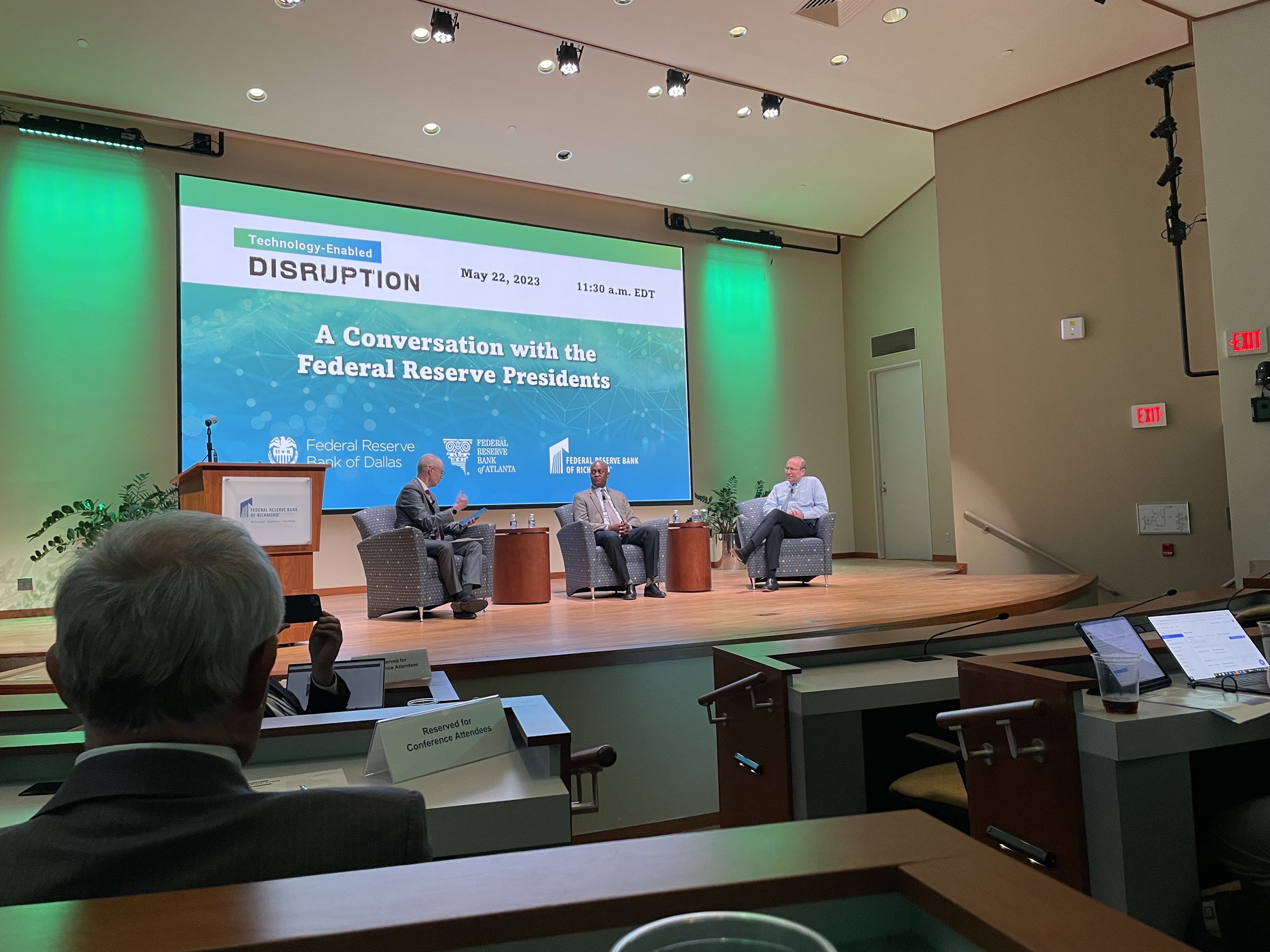After attending the Richmond Federal Reserve conference from May 22-23, the themes of the macroeconomy, tech-enabled disruption, and the energy transition are elaborated on in a series of videos. The conference included leaders from the Dallas and Atlanta Fed districts, and also covered the perspectives of academics and leaders from the 5th and 6th districts. I attempt to apply any new learnings to my evolving outlook, a synthesis of these themes.
Notably, an executive from the semiconductor industry suggested that two-thirds of the economy is affected by tech disruption. The hyperbolic rise of Nvidia’s stock in late May serves as an example about how quickly disruptive technologies can emerge, or simply be recognized by the market. An AI expert weighed in on the state of AI and LLMs (large language models like ChatGPT and Bard). My videos address various topics that resonated, such as uncertainty and risks related to technology, geopolitics—and time horizons—as well as the shifting supply chains in the tech and energy sectors.
I’m reminded of the ongoing rebuilding and re-industrialization in the United States, driven by changes in supply chain routes and the global energy mix. I noticed the focus of electrification and the electric vehicles scene in the 5th district compared to the 11th district, driven by different energy mixes, resource availability, and policy factors. The dynamics are totally different in the two areas. The idea of increasing adoption of EVs speaks to the need for greater efficiency in electrification and more sustainable models. Things may turn out differently than current framings, from my point of view.
Regarding global energy demand, while efforts toward decarbonization and de-globalization are considered generally inflationary, I suspect technological advancements and efficiency can act as countervailing forces. The shale plays in the U.S. have been transformational and not fully recognized in the right way.
Human capital is a crucial factor in the energy transition and sustainability efforts. My recent experience at EarthX spoke to how important collaboration is to identify and implement better, sustainable approaches. Generative AI, inherent in large language models, have potential impacts on industries like advertising, customer service, and banking, Bloomberg notes. But data analytics of many types have been applied in virtually every sector of the economy. It is early days.
Below, a compilation of videos reflects the process of working down the research and ideas after the Fed, in descending order of time. The list at the top right (1/7) offers navigation. Then, after the “AI Day,” sparked by Nvidia, a knowledgable coder and I experimented with ChatGPT, pulling from the Internet.
Playlist Contents, Most recent on top.







